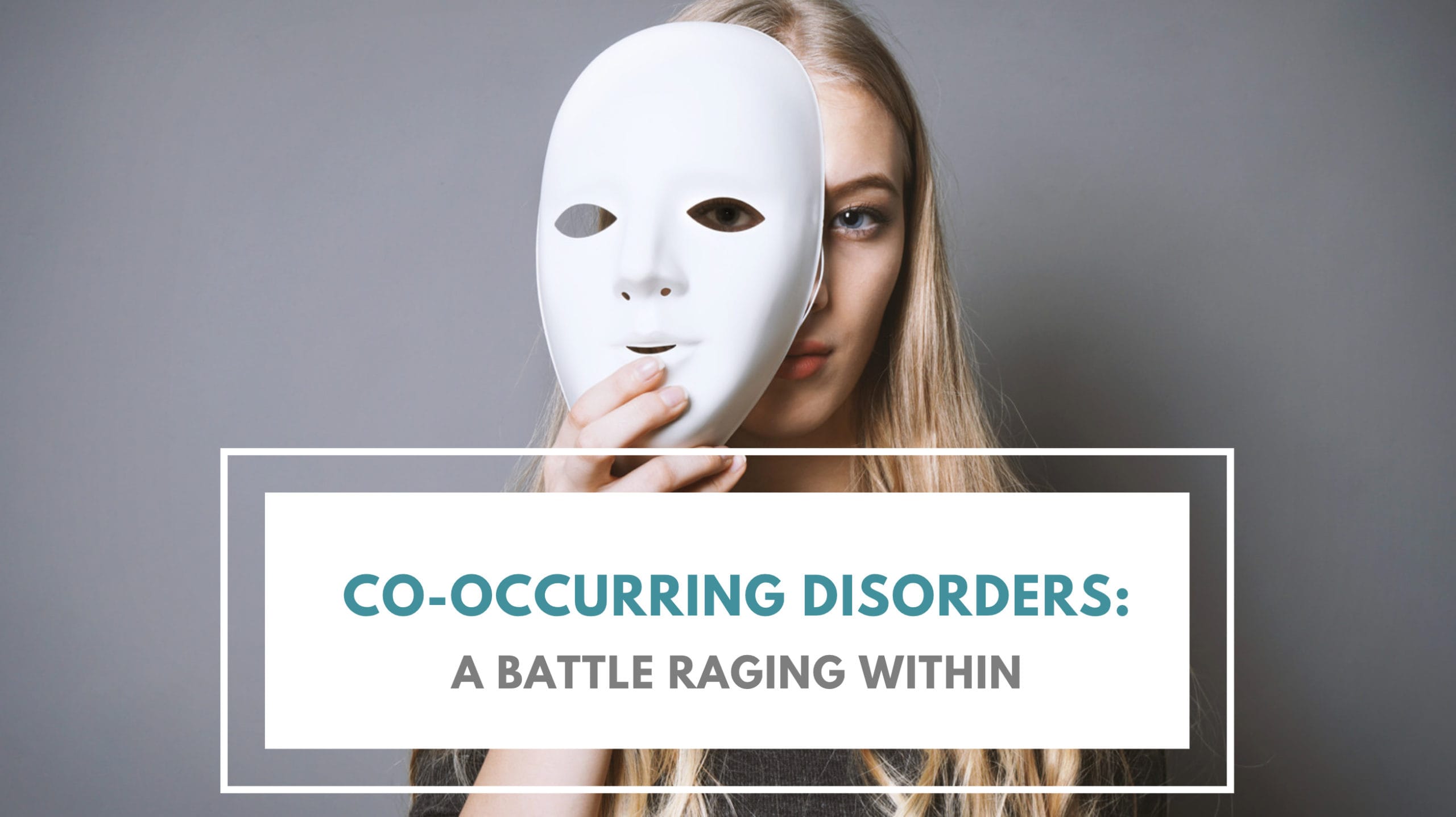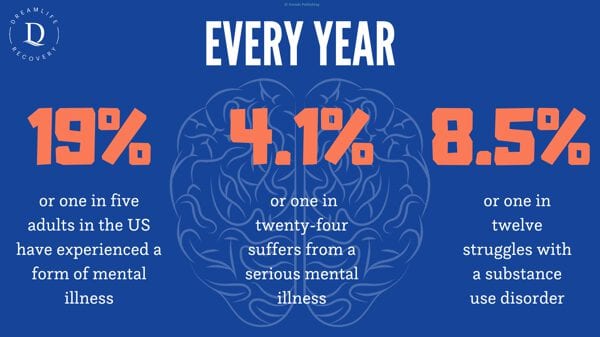Co-occurring Disorders: A Battle Raging Within


Written By
DreamLife RecoveryTreatment for addiction is not a “one size fits all” plan. Individualized plans and therapies ensure that not only their addiction is addressed but also any other mental health disorders they may be facing. Successfully identifying and unraveling co-occurring mental health disorders that have emerged—while sometimes challenging—can help determine the optimal treatment protocol for overcoming a dual diagnosis.
What Does Co-Occurring Disorders Mean?
The term “co-occurring disorders” refers to the existence of a substance use disorder and a mental health disorder presenting simultaneously. This condition is also called comorbidities or a dual diagnosis. According to the National Alliance on Mental Illness, approximately 9.2 million U.S. adults experienced co-occurring disorders in 2018.
Anyone who has suffered through a bout of depression, survived a significant trauma, or struggled with extreme mood swings or anxiety can easily grasp why there is a desire to escape that emotional pain. Whether subduing chronic anxiety, insomnia, or feelings of hopelessness and despair, seeking relief through the numbing effects of a substance is an extremely common response.
On the other hand, someone who becomes chemically dependent or addicted to a substance may eventually experience any number of negative consequences directly related to the substance use disorder. As these consequences mount and take their toll, symptoms of depression or anxiety may develop in response to the added stress the addiction has caused.
Because the symptoms of each dual diagnosis are specific to the combination of presenting disorders, such as a person with major depressive disorder and co-occurring alcoholism or someone with an anxiety disorder and co-occurring benzodiazepine addiction, it is difficult to specify the exact symptoms of a dual diagnosis. However, there are certain common core features of co-occurring disorders:
- Extreme mood swings
- Irritability or angry outbursts
- Emotional instability
- Inability to maintain employment
- Inability to maintain healthy relationships
- Financial problems
- Legal problems
- Becoming increasingly irresponsible
- Beginning to ignore or avoid obligations
- Withdrawing from friends and family
- Erratic or risky behavior
- Increased consumption of the substance of abuse
- Exhibits withdrawal symptoms when not using substance
What are Mental Health Disorders?
Mental health pertains to our emotional, behavioral, and cognitive wellbeing. Therefore, a mental health disorder refers to a psychiatric disorder that results in significant emotional distress and impairment in functioning. Examples of mental health disorders include:
- Mood disorders
- Trauma disorders
- Personality disorders
Individuals struggling with a mental health disorder may attempt to self-medicate the negative effects of the disorder with alcohol or drugs, only compounding the impact of the mental illness and potentially developing dependence or addiction.
Treatment for Co-Occurring Disorders
Best practices for dual diagnosis treatment involve accessing a full spectrum of therapeutic interventions that work in an integrated fashion. Both disorders must be properly diagnosed before a targeted treatment plan can be designed.
Programs that specialize in dual diagnosis treatment will have a psychiatrist on staff. These mental health professionals will work in partnership with the addiction specialists, helping to manage medications and unpredictable symptoms that may occur during treatment.
Dual diagnosis treatment includes the following treatment elements:
- Medical detox
- Psychotherapy
- Group therapy
- Medication management
- Holistic therapies
- Psychosocial education
- 12-step programming
- Aftercare planning
DreamLife Recovery provides expert dual diagnosis treatment for co-occurring disorders using a multi-faceted approach. If you are ready to begin your path to recovery from a dual diagnosis, allow the compassionate team at DreamLife Recovery to offer the support and guidance you deserve. For more information about our comprehensive program, please reach out to us today at (844) 402-3592.
Resources:
- “Substance Use Disorders” – National Alliance on Mental Illness; Rev. May 2020
- “Mental Health Conditions” – National Alliance on Mental Illness
- Kelly, Thomas M, and Dennis C Daley. “Integrated treatment of substance use and psychiatric disorders.” Social work in public health vol. 28,3-4 (2013): 388-406







